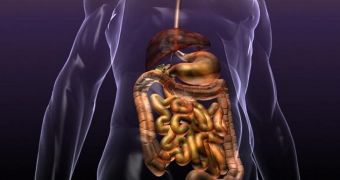In what might be the absolute freakiest news of the week, researchers writing in the journal BioEssays argue that bacteria populating our guts exercise mind control and get us to eat what they want rather than what our bodies need.
Otherwise put, it appears that our cravings might not be our own, but instead that of bacteria living inside us. Hence, it could be that gut bacteria are the real culprits for the surge in global obesity.
In their paper in the journal BioEssays, the specialists behind this science fiction-like claim explain that, as shown by previous investigations, the bacteria inhabiting our guts more often than not outnumber our cells about 100-fold.
Of these bacteria, some like to feast on fat. Others much prefer snaking on sugar, the specialists further detail. It is now believed that these bacteria actively influence our eating behavior in order to make sure that they each get their favorite treats.
“Bacteria within the gut are manipulative,” says researcher Carlo Maley with the University of California, San Francisco. Furthermore, “There is a diversity of interests represented in the microbiome, some aligned with our own dietary goals, and others not.”
This is yet to be confirmed by further investigations into the matter at hand, but the scientists behind this research project suspect that bacteria in our guts toy with our dietary choices by releasing molecules that ultimately alter physiologic and behavioral responses.
One other possibility is that bacteria exercise mind control by acting on the vagus nerve, otherwise known as the pneumogastric nerve. This is the tenth cranial nerve and serves to connect nerve cells found in the digestive tract to the brain.
“Microbes have the capacity to manipulate behavior and mood through altering the neural signals in the vagus nerve, changing taste receptors, producing toxins to make us feel bad, and releasing chemical rewards to make us feel good,” explains scientist Athena Aktipis with the Arizona State University.
The good news is that there is one very simple way to shake off this influence that gut bacteria hold on our dietary choices. Thus, scientists say that, by making a conscious decision to opt for foods we don't normally eat, we can reshape the community of bacteria inside out. This will in turn alter our cravings.
“Our diets have a huge impact on microbial populations in the gut. Targeting the microbiome could open up possibilities for preventing a variety of disease from obesity and diabetes to cancers of the gastro-intestinal tract. We are only beginning to scratch the surface of the importance of the microbiome for human health,” argues Carlo Maley.
“Because microbiota are easily manipulatable by prebiotics, probiotics, antibiotics, fecal transplants, and dietary changes, altering our microbiota offers a tractable approach to otherwise intractable problems of obesity and unhealthy eating,” the University of California, San Francisco specialist and colleagues maintain.

 14 DAY TRIAL //
14 DAY TRIAL //